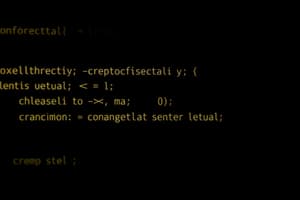Podcast
Questions and Answers
What is a closure in Python?
What is a closure in Python?
- An anonymous function defined without a name
- A function that retains access to variables from its parent function (correct)
- A built-in function to manipulate data collections
- A function that returns values using the 'return' keyword
Which type of function is defined without a function name in Python?
Which type of function is defined without a function name in Python?
- Lambda functions (correct)
- Closures
- List comprehensions
- Generators
What does the 'return' keyword do in Python?
What does the 'return' keyword do in Python?
- Call a function
- Create a closure
- Define a list comprehension
- Return a value from a function (correct)
Which of the following operations is performed by the 'add_numbers' function in Python?
Which of the following operations is performed by the 'add_numbers' function in Python?
In Python, which feature allows for a concise way to manipulate collections of data?
In Python, which feature allows for a concise way to manipulate collections of data?
What is the primary purpose of functions in Python?
What is the primary purpose of functions in Python?
How do functions contribute to code readability in Python?
How do functions contribute to code readability in Python?
What keyword is used to define a function in Python?
What keyword is used to define a function in Python?
How can functions help with code reusability in Python?
How can functions help with code reusability in Python?
What is the benefit of breaking down complex tasks into smaller functions in Python?
What is the benefit of breaking down complex tasks into smaller functions in Python?
Flashcards are hidden until you start studying
Study Notes
Python Functions: A Comprehensive Guide
Python's versatility can be largely attributed to its functions, which are the building blocks of its programming. Functions help you organize code, make it reusable, and keep your programs structured and maintainable.
Why Functions Matter
Functions in Python serve several purposes:
- Code reusability: You can define a function once and use it multiple times throughout your project, reducing duplication and making it easier to maintain your codebase.
- Modularity: Breaking down complex tasks into smaller, more manageable functions allows you to separate responsibilities and simplify your code.
- Readability: Functions help you express your intent clearly and reduce the complexity of your program, making it easier to understand and maintain by other programmers.
In Python, you can define functions using the def keyword, followed by the name of the function and a set of parentheses (()).
Function Syntax
def function_name(parameters):
# Function body
The function body executes when the function is called, and the parameters represent the inputs to the function.
Types of Functions
- Built-in functions: Python comes with a set of built-in functions that perform various tasks, such as
len(),print(), andmax(). - User-defined functions: You can create custom functions to perform specific tasks and recursively call them as needed.
Function Calls
To call a function, you use the function name followed by a set of parentheses () containing any required arguments.
result = function_name(args)
Return Values
Functions can return values using the return keyword. In the following example, the function add_numbers returns the sum of two numbers.
def add_numbers(a, b):
return a + b
result = add_numbers(2, 3)
print(result) # Output: 5
Closures
Closures are functions that have access to the variables of their parent functions, even when the parent function has finished executing.
def make_adder(x):
def adder(y):
return x + y
return adder
add_five = make_adder(5)
result = add_five(3)
print(result) # Output: 8
Lambda Functions
Lambda functions are small, anonymous functions, defined on-the-fly, without the need for a function name.
add_three = lambda x: x + 3
result = add_three(2)
print(result) # Output: 5
List Comprehensions and Generators
Python's list comprehensions and generators provide a concise way to manipulate collections of data.
squares = [num ** 2 for num in range(10)]
print(squares) # Output: [0, 1, 4, 9, 16, 25, 36, 49, 64, 81]
Further Resources
To learn more about Python functions, we recommend exploring the resources below:
- [Python Tutorials from Real Python]
- [Python Community Articles and Interviews from Real Python]
- [Python's Built-in Functions from the Official Python Documentation]
- [Python Articles from Codecademy]
As you progress with Python functions, you'll discover their power and versatility in developing a wide range of applications. From simple scripts to complex software, Python functions form the core of your programming endeavors.
Studying That Suits You
Use AI to generate personalized quizzes and flashcards to suit your learning preferences.




